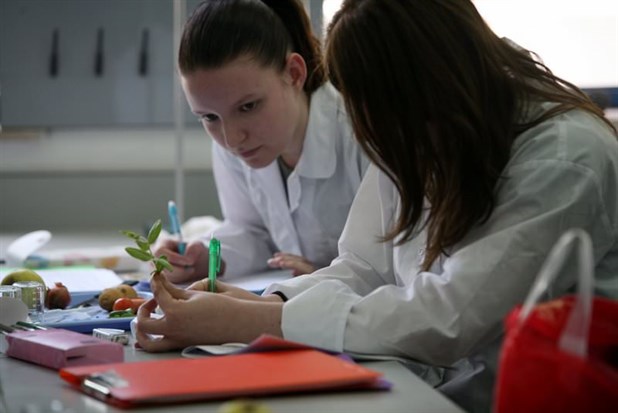

The Bachelors of Science in Environmental Quality Sciences program at Hadassah Academic College explores the impact of modern developed environments on human health and well-being. The challenges of noise and air pollution, water and wastewater pollution control, toxic and solid waste, resource management and insect-borne diseases are modern-day hazards that call for a cadre of committed individuals who understand the issues and have the knowledge and proficiency to take action. The College's unique program meets these challenges by equipping graduates with the knowledge and essential tools for identification, assessment, prevention, and control of potentially harmful environmental factors. Students also obtain the skills to plan, implement, update, and enforce programs to protect the environment. The program involves theoretical components which are supplemented with practical aspects related to the assessment and control of environmental factors that could potentially be dangerous to the health of current and future generations.
The Environmental Quality Sciences program interdisciplinary incorporating the study of biology, physics, chemistry, public health and engineering aspects. The program emphasizes the effect of the environment on human health through exploration of the natural and life sciences. Students enjoy a variety of attractive courses on environmental health, sanitation, public health, air and water or wastewater quality, solid waste management and recycling, industrial hygiene, radiation and noise, legislation, and economics.
The program is taught by highly skilled and experienced scientists from institutions of higher education the Israeli Ministries of Environment and Health, and organizations and institutions dedicated to the environment. Faculty and staff are extremely dedicated to students and offer them extensive help and support throughout the course of their studies and beyond.

Subjects within this field provide students with scientific information and applications required for the profession of Environmental Quality Sciences. Including an understanding of the exposure systems and their influence on human health and knowing the steps we can take for quality and pollution control and prevention of health hazards. Within this subject, the courses include: familiarization with water and wastewater sources in Israel, groundwater hydrology, , chemical reactions and processes in water, parameters for defining, microbial and chemical water quality, soil and land sciences, chemical and biological processes that take place in soil, the refuse problem and the various ways to deal with it in Israel and the world. Students also learn the various methods available to record hazardous materials and different mechanisms, linked to diseases through food and water born diseases, analyzing occurrences of food poisoning and quality control of food production - understanding the spread of disease by insects and insect control. After 6 semesters, the student need to do final project which include one of the top issues of the department. Most of the project carried out with cooperation of ministry of environmental defense , universities, industry and research labs.
These subjects provide students with scientific information in the fields of meteorology, air pollution and hazards in the physical environment- through understanding the physics-chemical mechanisms that create air pollution and changes in our atmosphere. Students receive practical training near the theoretical aspects in monitoring, air quality control and prevention of air pollution. This practical learning form prepares the student for Master degree or functions in industry and labs. Subjects of courses include: familiarization with global problems of air pollution, global climate changes and understanding the effects on our health, introduction to industrial hygiene, radiation factors in the workplace, penetration mechanisms of chemical materials into the body, hazards at the workplace from gasses and insecticides, rules and legislation for industrial exposure tools, sophisticated instrumentation for minimizing the industrial air pollution and methods to measure noise and earthquakes, acoustic issues during the planning stages and solutions, Israel's standards and international standards, sources of radiation exposure, the basics of radiation protection and familiarization with uses of nuclear energy.
The subjects in these courses expose students to ideas in the field of physical planning and deal with the following issues and subjects: understanding the reciprocal relationship between the planning fields and the environmental fields; central environmental issues in Israel, from the environmental health and the legislative perspectives, legislation and rulings that deal with central issues of environmental health in Israel and basic methods and applications in public administration.